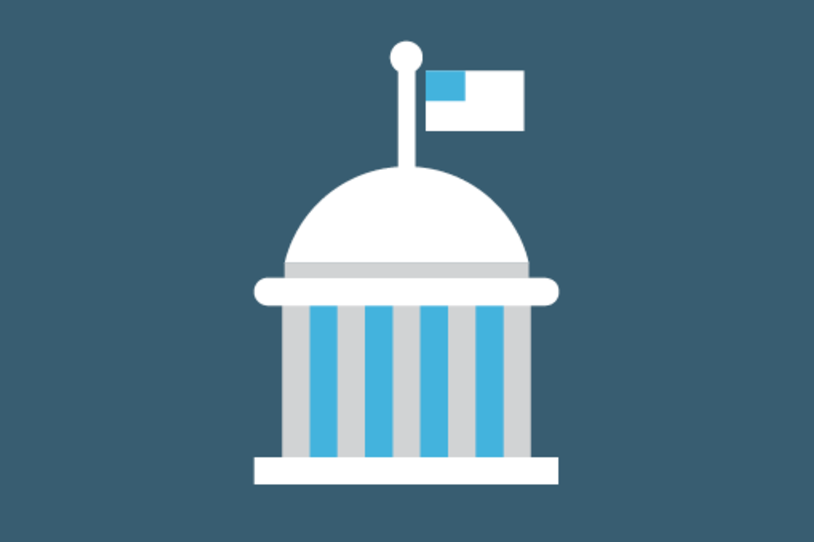
As a new president takes office next year, the political environment in Washington, DC, will change. The Foundation will soon ask for your input in naming policy principles that will inform our conversations and actions under the new administration. As always, we will continue to advocate for increased medical research investments and work on issues that are important to the Parkinson's disease (PD) community.
In these early days after the election, though, we'd like to share more information about policy issues that could impact our community.
House and Senate Structure: Republicans will continue to hold the majority in both the House and Senate. As of right now, the Senate is 51 Republican -- 48 Democrat (one seat in Louisiana won't be determined until a run-off race in December). The House is 238 Republican -- 193 Democrat. This majority theoretically could provide the President-elect with the ability to enact much of his agenda. On the campaign trail, the President-elect said he will repeal and replace the Affordable Care Act, which prevents discrimination based on pre-existing conditions and eliminates annual and lifetime caps on insurance coverage. It also guarantees coverage for preventive services (e.g., certain immunizations and screenings) and has provided health insurance coverage to approximately 22 million Americans.
At this time, the president-elect has not released a formal proposal to replace the Affordable Care Act. The Foundation will keep the community up to date on any bills introduced in Congress that could impact the Parkinson's community.
Medical Research Funding: In reviewing the President-elect's website, we find nothing specific on the topic of medical research funding. In searching the Internet, we similarly find nothing on this subject. We'll continue to monitor these issues and advocate for greater federal research funding.
Leading scientists and policy experts prepared recommendations for the next administration that would further research at the National Institutes of Health (NIH). Read the paper.
Medicare and other Federal Programs: As part of the effort to reduce federal spending, Republicans have generally been in favor of reforming certain government benefit programs (e.g., Medicare, Medicaid, Social Security). During the campaign the President-elect spoke about protecting these programs for older Americans, but some of his aides have stated that reforms could be part of an overall policy to achieve desired tax cuts. As the Foundation learns of specific proposals on this issue, we will keep the community informed.
Medical Marijuana: Advocates for the legalization of medical marijuana swept up big wins across the country as voters in Arkansas, Florida and North Dakota gave a thumbs up to medical cannabis. Voters in Montana voted to reduce restrictions on medical marijuana in the state. Before Election Day, 25 states plus Washington, DC, had legalized medical cannabis. Read more on marijuana and Parkinson's disease.
Supreme Court: The Supreme Court frequently rules on health care- and research-related issues. And while the Court wasn't on the ballot, its future was. There is currently one vacancy (due to Justice Antonin Scalia's death last year) and three justices are nearing or past the average age justices leave the court. During his campaign, the President-elect released a list of potential Supreme Court nominees that he may appoint once in office. Because Supreme Court justices serve for life, any appointee would have significant influence on public policy for decades to come.
Priorities through the Remainder of 2016: The federal budget for Fiscal Year (FY) 2017 has still not been passed. A temporary spending bill funds the government through December 9, and Congress is expected to pass another temporary spending bill to fund the government through March 31, 2017. The Foundation has joined other patient groups to urge Congress to avoid additional temporary bills and complete a FY 2017 budget by the end of this year. Funding for the NIH, the largest funder of Parkinson's research, and funding for the Department of Defense Parkinson's Research Program, the only government-funded research program dedicated to PD, are key pieces of the federal budget.
The other major health-related priority in these last days of 2016 is the 21st Century Cures Act, which provides a temporary funding boost to NIH, creates a national data collection system for neurological diseases and aims to speed the process of getting new therapies to patients. The House and Senate are expected to vote on this bill in the coming days. The Foundation is monitoring the status of this legislation and is urging its passage by the end of the year.
We will continue to work for policies and programs that benefit the PD community. Stay tuned to our blog and watch your email for updates.